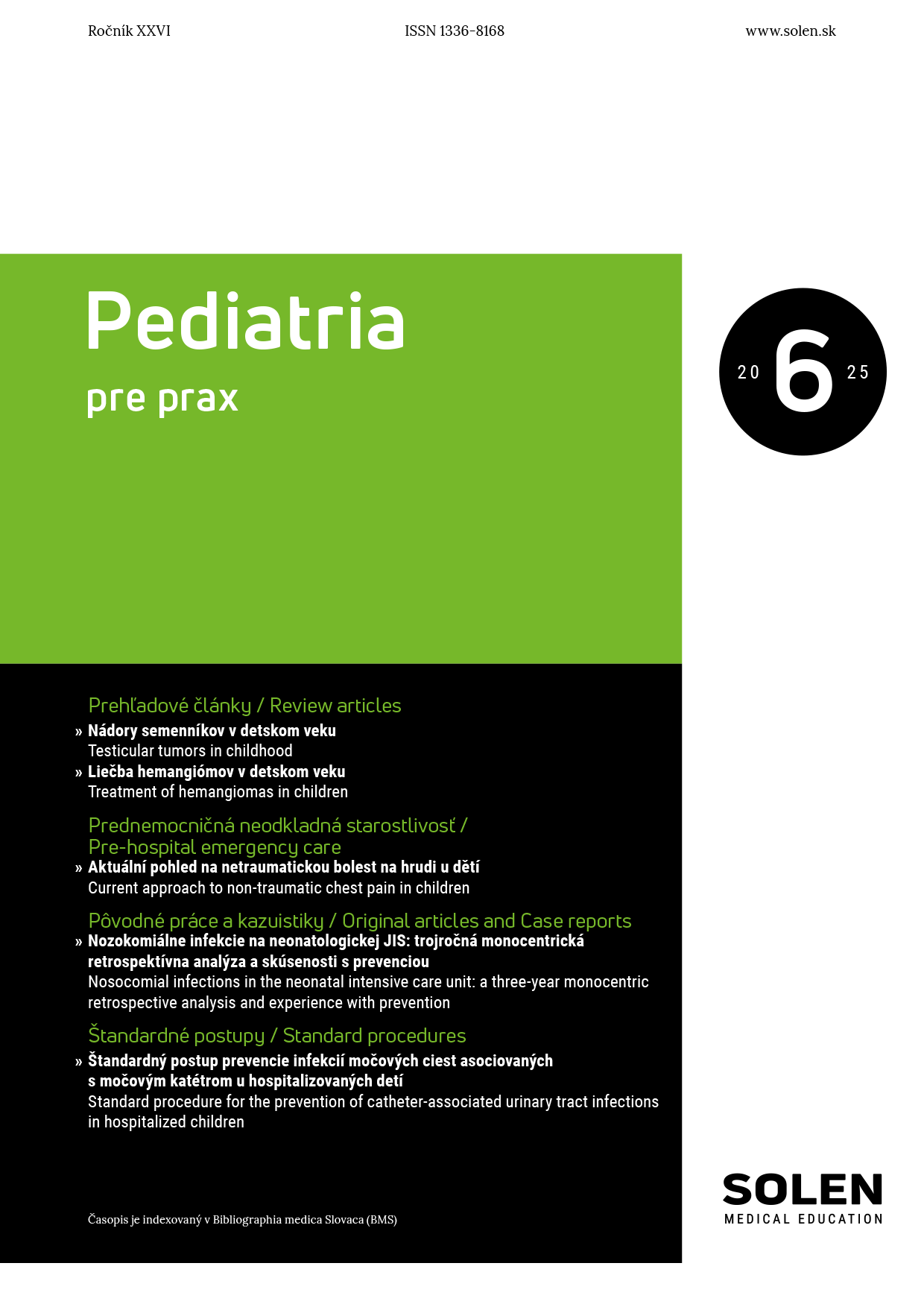Lekárska genetika a diagnostika 1/2024
Genetic neurodevelopmental disorders in childhood
Purpose: Neurodevelopmental disorders are congenital disorders of the nervous system, disorders of the development of the brain, its structure and its function with the inability to reach certain milestones in cognitive, emotional or motor development. According to the DSM-5 classification, neurodevelopmental disorders include intellectual disorders, communication disorders, autism spectrum disorder, attention-deficit/hyperactivity disorder, specific learning disorders, motor disorders, tic disorders, and other neurodevelopmental disorders. The range of the genetic causes of neurodevelopmental disorders is very diverse, from chromosomal abnormalities, microdeletion and microduplication syndromes, monogenic disorders, to other genetic changes (imprinting disorders, mutations of mitochondrial DNA) and complex disorders with polygenic inheritance and a significant influence of environmental factors. The frequency of de novo causal pathogenic variants is increased in most neurodevelopmental disorders. Case reports: In the second part of the article, we focus on the genetic diagnosis of four pediatric patients with neurodevelopmental disorders - PPP2R5D-associated neurodevelopmental disorder, neurodevelopmental disorder with epilepsy, microcephaly and brain abnormalities (NEDSMBA), KCNQ3-associated neurodevelopmental disorder and FOXP2-associated disorder of speech and language development. Conclusion: Genetic testing should be part of the standard management of a patient with a neurodevelopmental disorder, especially in patients with global developmental delay, intellectual deficit or autism spectrum disorder. The significant genotype and phenotype heterogeneity of neurodevelopmental disorders has led in the recent years to the recommendation of several professional genetic societies to proceed, in the search for the genetic cause, with NGS, CES, WES or WGS examinations, following the karyotyping, SNP microarray and FMR1 gene testing. Identification of the genetic etiology of neurodevelopmental disorders provides information on prognosis, risk of disease recurrence in the patient‘s family, guides clinical management, and provides access to targeted support for family of the patient, genetic counseling, and eventual therapy.
Keywords: neurodevelopmental disorders, PPP2R5D, PPFIBP1, KCNQ3, FOXP2

















